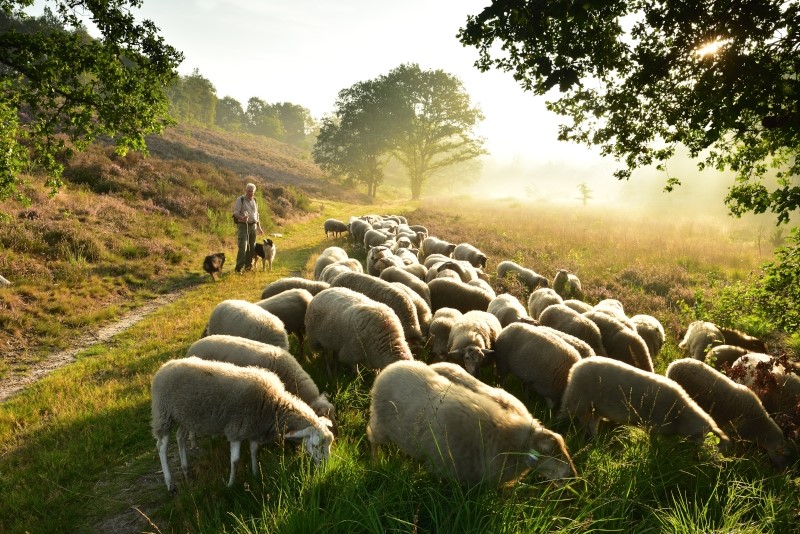Nature and economy
This research focuses on the mutual dependence and impact of nature and the economy.
The state of nature has deteriorated significantly. Large-scale pollution, unsustainable extraction and land-use changes have severely degraded and fragmented Flanders' nature, in favour of economic growth. The impact of our economy on nature is not limited to regional borders but is felt globally. At the same time, our economy is highly dependent on nature. Just think of agriculture, which depends on healthy soils, pollinators and a resilient agro-ecosystem; or forestry, which depends on a healthy and resilient forest. Indirectly, our economy also depends on nature: clean drinking water, protection against floods, mental and physical health,... When nature is no longer healthy and resilient, it cannot provide a stable and fertile environment in which our society - with its economy - can flourish.
The economy can also contribute to nature. Significant additional investments are needed to restore nature, increase its resilience to climate change, fight invasive species and implement nature-based solutions inside and outside urban areas. These investments also pay off, not only in euros but also because we get valuable services in return such as clean waterways, carbon storage and a pleasant and healthy living environment.
INBO unveils the connections, ...
The close interdependence between nature and the economy is often overlooked, with the economy sometimes viewed as detached from or conflicting with nature. INBO aims to illuminate the links and interdependencies, by building on an extensive base of monitoring data. Where necessary, we aim to expand data collection to better understand and clarify linkages, for example around productivity, economic importance and profitability of our forestry sector.
lets nature count, ...
In doing so, we apply the principles of plural valuation, allowing us to perceive nature from diverse perspectives. Through this lens, nature becomes not only something we use, but also something we are intimately connected to and with rights of its own that must be respected. We explore how to determine the ecological, economic and cultural values of nature and better integrate them into policy choices. In multifunctional forest management, for example, economic profitability, amenity value and ecological value should be considered together. Balanced valuation is also essential to find cost-effective solutions to a variety of challenges in multifunctional landscapes, such as flood prevention and invasive species control.
in Flanders and the world, ...
In Flanders, our research aims to contribute to building a nature-positive economy, focusing on local companies producing sustainable products. But we also want to contribute to reducing our impact on biodiversity and climate abroad.
on small, large and systemic levels.
We want to explore this on different scales: from local nature-based solutions, across sectors such as agro-ecological agriculture or forestry, to economic models that pursue and test a fair and sustainable model on a systems scale. At the macro level, we also want to conduct research on the potential for nature-positive economies. In doing so, we contribute to the public debate around post-growth and the green economy, looking with a scientific lens at the effects of different scenarios. This approach helps us avoid reducing "the valuation of nature" to merely the internalisation of "natural capital" in economic models that remain destructive on a systemic level.

